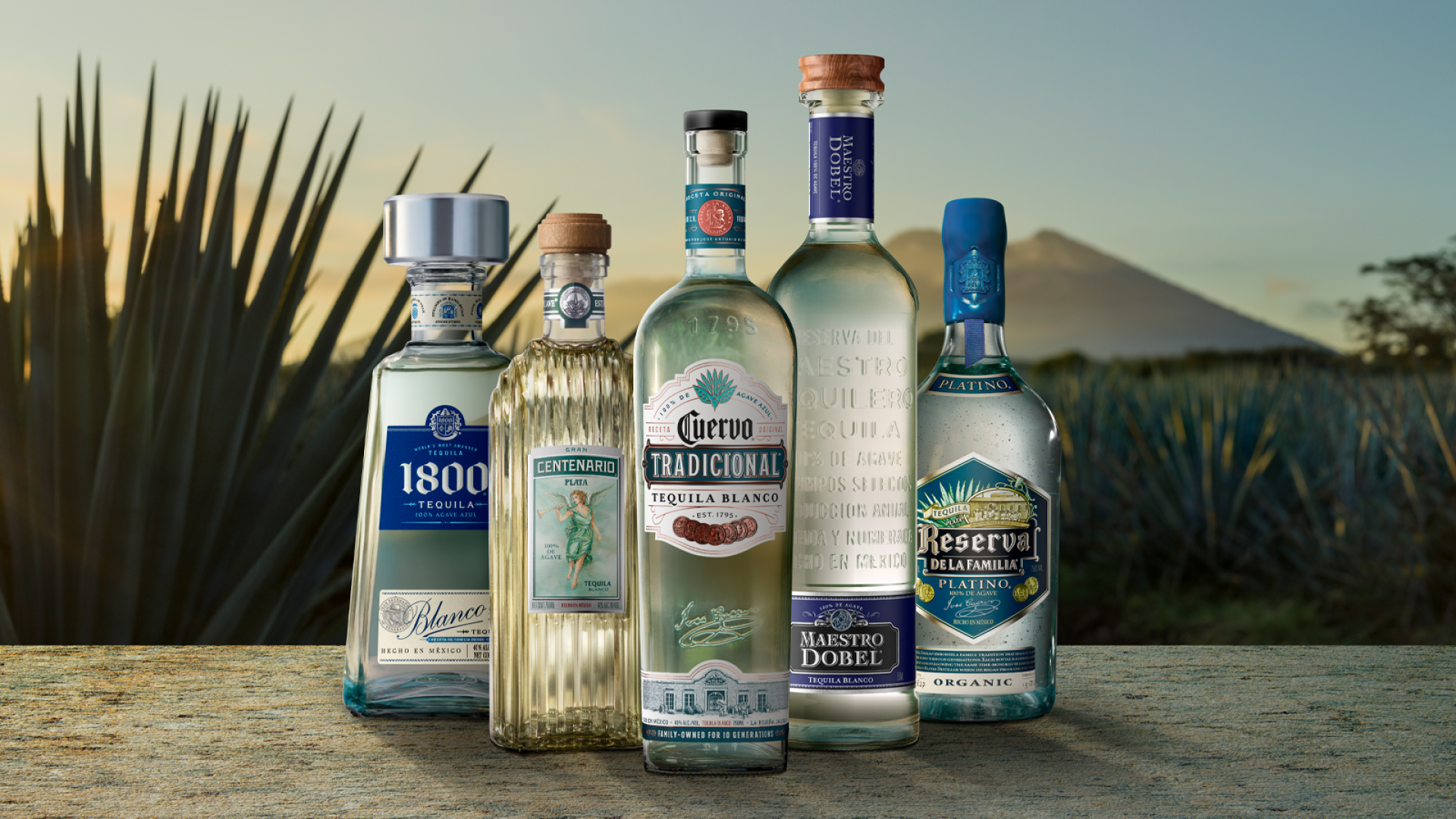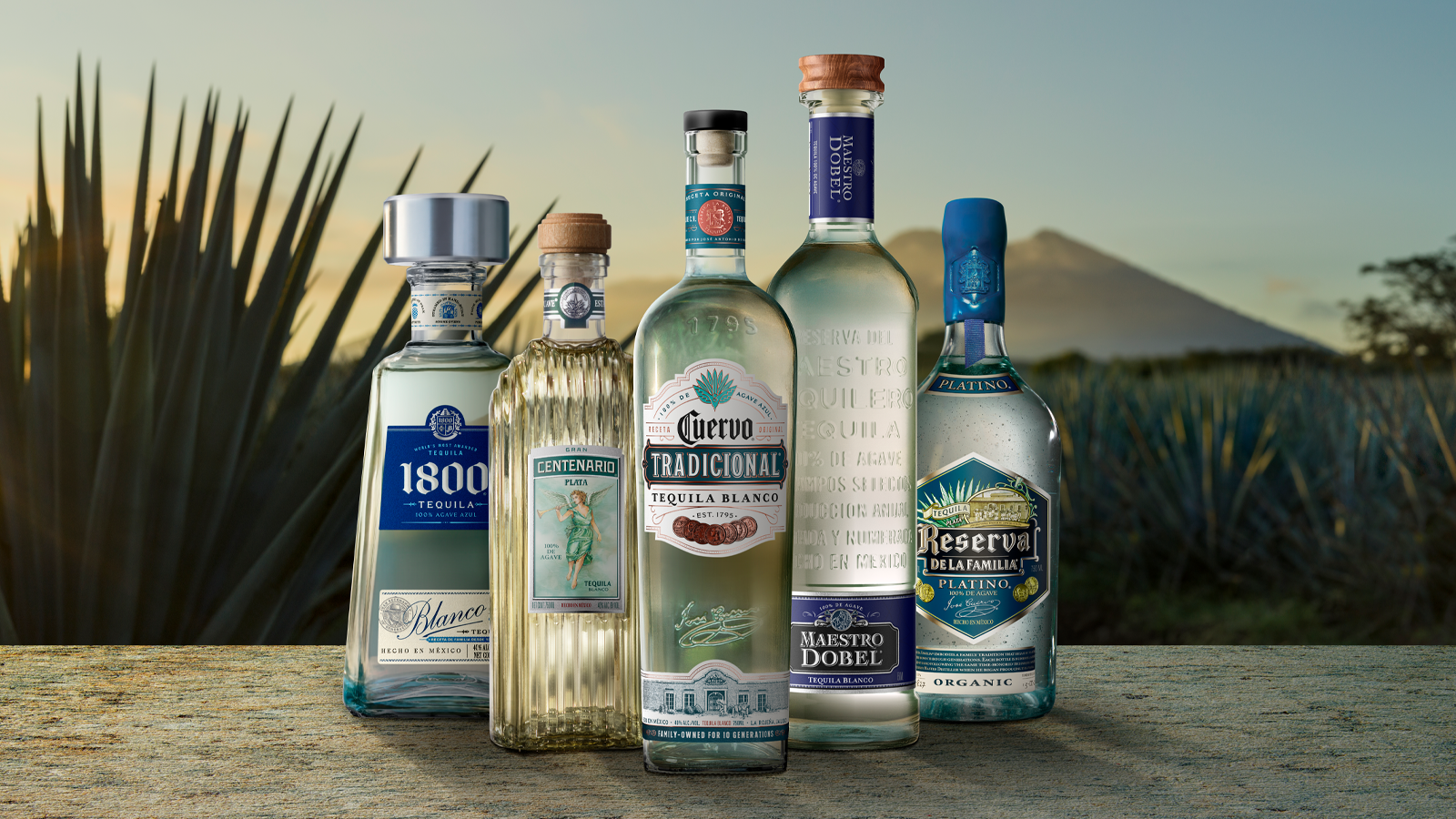

With These Brands, You'll Always Know What's in Your Tequila
August 6, 2025 –––––– Sponsored Content
There has been a revolution of sorts over the past few decades: More and more, consumers of spirits want to know what’s in the products they purchase and enjoy—and who makes them and where they are from. Provenance and production methods have become top-of-mind considerations for discerning drinkers.
The Tequila industry has long been a leader in standards that ensure quality. It is a protected D. O. spirit (denomination of origin), meaning it can only be made in Mexico, with Blue Weber agave, under tight regulations dealing with strength, age, and geography, among other considerations.
Today, though the term is widely discussed (and widely misunderstood), “additives” have become a frequent conversation topic.
That’s not a bad thing: Many producers are taking the opportunity to discuss the intentions behind how they make their spirit, as well as the balance of traditional and modern methods of production. “Additives” have long been a part of the distiller’s art across most spirit categories including Scotch, Rum, Vodka, Gin, and Cognac, even if the word itself sounds like some new addition to your bottle. Additives have generally been used with care to foster the experience consumers rightfully expect from their preferred spirit; they want it to taste the same each time they purchase a bottle.
The Tequila category’s standards in this area are, in fact, unusually stringent. While Cognac, for example, permits up to 4 percent in additives by volume, and Rum up to 2.5 percent, the Tequila industry across the board agrees on a limit of just 1 percent of unlabeled additive per 100% of liquid weight Tequila. Still, the moment a spirit touches a barrel—and nearly all of them do—it is difficult to even use the term “additive-free,” as compounds like glucose from the wood/cask, and fine details of flavor imparted from the barrel’s previous use for a spirit or wine, will find their way (often happily) into the finished product. It’s nearly impossible to test for additive usage across batches, and despite some manufacturers’ claims, there is no official additive-free label certification in place with the Mexican governing body.
Like all spirits in the U.S., Tequila bottles do not need to disclose the use of additives within production. A notable range of makers, however, include just the simple trinity of agave, yeast, and water, relying on the plant’s natural composition and sophisticated techniques to achieve superb flavor. The best makers have their own different ways to cook, ferment, and distill, in addition to their own unique recipes.
And making Tequila doesn’t stop at the liquid you see in the bottle. The protection of the land and people that grow the agave is critical. Agave takes a minimum of 5 to 6 years in the ground before it has enough sugar content to harvest, a very different time frame from grain or cane-based spirits that can grow in just one season. That is why water conservation, pest control, and support of the field workers and growers should be considered as a factor in the price you pay for each bottle of your favorite Tequila.
Around the world, the name Jose Cuervo is synonymous with Tequila—and rightly so. Still Mexican-owned, the house is the oldest family-run Tequila company in the world and is now, astonishingly, in its eleventh generation. With that longevity comes perspective. The family’s ancestors were among the nation’s first farmers to cultivate agave for spirit production, and as such, the company is committed to supporting the Mexican rural communities that are Tequila’s foundation. Their ethos is to protect both the industry and the environment that produces the precious liquid for generations to come.
Cuervo’s Tradicional Blanco, rooted in more than 230 years of tradition, embodies these commitments, from harvest to shelf. The agaves are cooked for 36 to 40 hours in traditional masonry brick ovens, and then—at La Rojeña, the oldest distillery in Latin America—are passed through roller mills in a four-step process to extract the juices. The final product contains just protected well water, yeast for fermentation, and Blue Weber agave, and offers herbaceous citrus notes balanced by spicy, sweet fruit and a clean finish, perfect as a sipper on the rocks or in your favorite cocktail.
The crown jewel of the Cuervo Family portfolio is the exquisite Reserva de la Familia by Jose Cuervo collection, small-batch artisanal Tequilas handcrafted with meticulous care. The Platino Tequila is produced following the Esencia de Agave process, a set of proprietary techniques known only by the distillers. This special method allows the agave notes to retain their original character and shine through in the aroma and flavor of the finished Tequila. This award-winning classic, now made organically, contains just three ingredients—agave, yeast, and water. The result is a bright, unaged Tequila featuring a distinctive sweet and spicy palate with notes of melon, honey, and hay, culminating in a clean finish highlighted by warm cinnamon spice.
The super premium category in the United States is led by the iconic 1800 Tequila, named for the year Tequila began gaining recognition beyond its humble origins in Jalisco, Mexico. For 1800 Blanco, a special selection of white Tequilas are blended for added complexity and flavor, the bottling features a floral, fruity aroma with hints of spice and black peppercorn, with a balanced sweet prune and roasted pepper flavor. Agave hearts are hand-harvested at peak maturity before they are cooked in traditional masonry brick ovens for over 36 hours and then double-distilled in copper pot stills. 1800 Tequila is known as the World’s Most Awarded Tequila and continues to raise the bar in pursuit of one goal: helping people find the best taste in Tequila and in life.
The #1 Tequila in Mexico remains Gran Centenario—the Tequila that Mexicans drink. Steeped in over a century of Mexican craft and heritage, Gran Centenario brings family and friends back to their home roots, celebrating culture and tradition in Mexico and around the world. Gran Centenario Plata presents vibrant fruit characteristics of pear, lime, and citrus, complemented by subtle black pepper undertones. This blanco Tequila is unique in that it is matured in American Oak pipónes for 4 to 6 weeks, contributing to its distinctive straw color. The surface contact ratio of the pipónes is smaller than a regular barrel, which allows for less exposure to the wood, creating a nuanced flavor profile when compared to other blanco Tequilas.
Founded by 11th-generation Tequila maker Juan Domingo Beckmann and handcrafted in the Tequila Valley, Maestro Dobel Tequila offers modern expressions of Tequila demonstrating its makers’ mastery of innovation and smoothness. The meticulously crafted, unaged Maestro Dobel Blanco benefits from Dobel’s double-distillation process, designed by maestro tequileros to accentuate the complexity of aromas and flavors developed through an entirely natural process. Also featuring only 100% agave, water, and yeast, this Blanco is even Kosher certified. The flavor leans sweet, featuring caramel, honey, maple, walnut, and vanilla tones, alongside a nearly indescribable softness. The agaves used to produce Maestro Dobel Blanco are harvested prior to the region’s rainy season to create a greater concentration of carbohydrates, adding depth of flavor and producing a notably smooth and complex blanco. The plants are jicama cut, meaning the jimadores remove as much as the green leaves as possible.
With more than 2,000 registered Tequila brands in Mexico, these qualities embody the wonderful paradox of blancos: from just three ingredients, these spirits offer a wide variety of intriguing pleasures, masterfully deploying the simplest ingredients to produce exceptional bottlings for every taste.
To find out more about Tequila – its history, heritage, and remarkable production techniques, visit tequilafacts.org.

